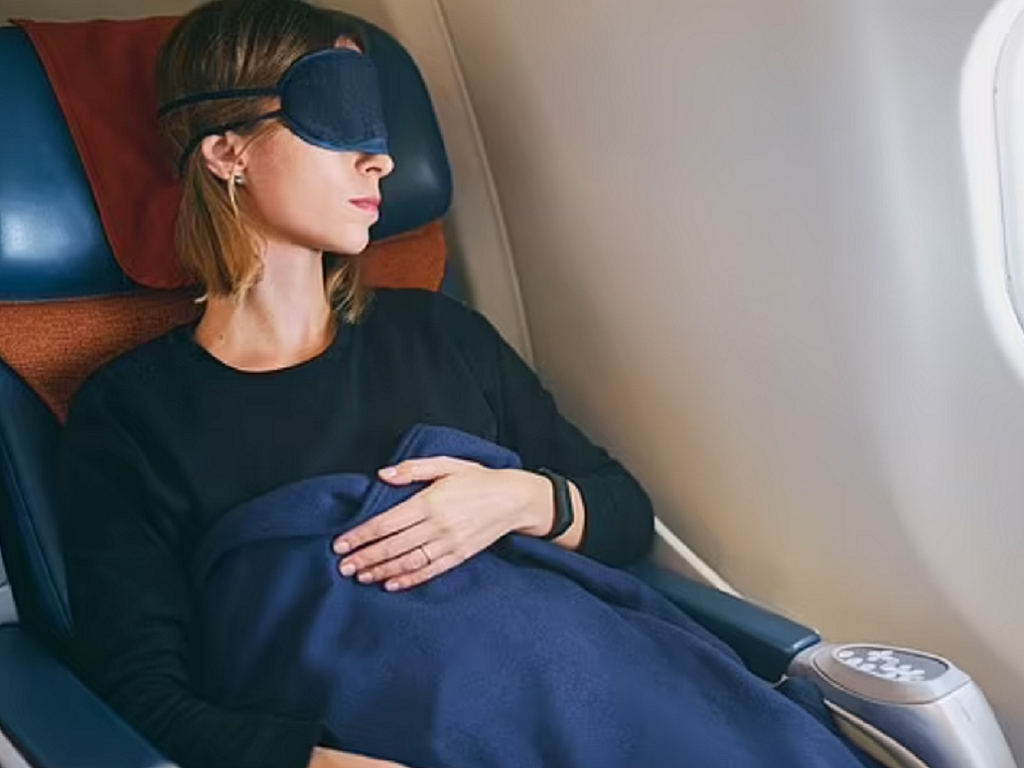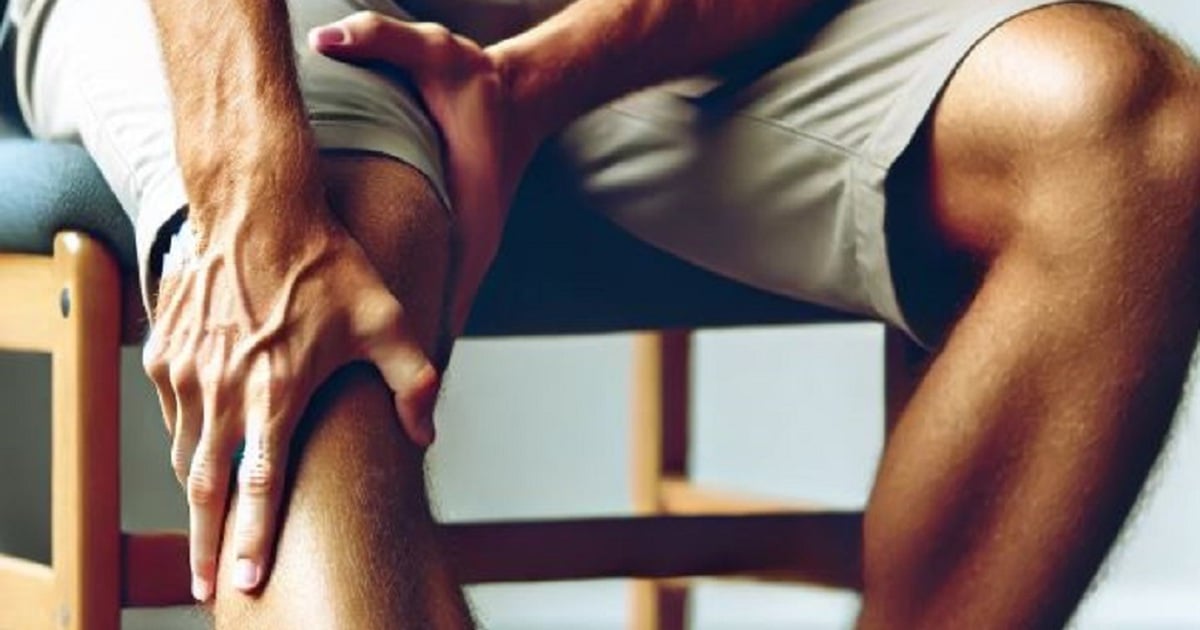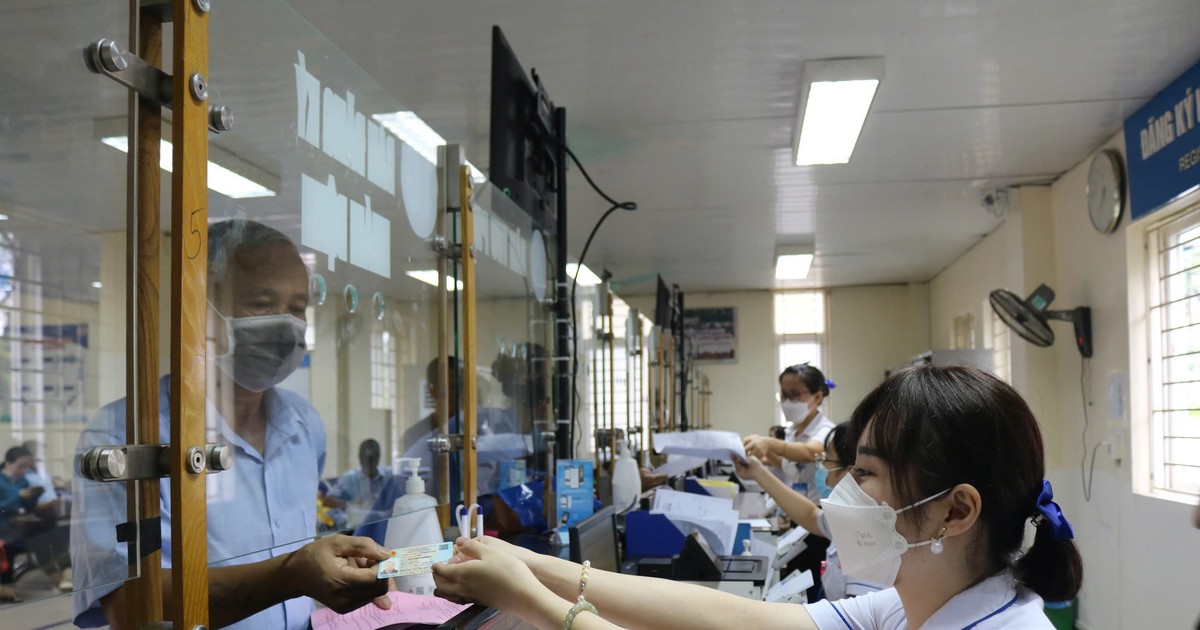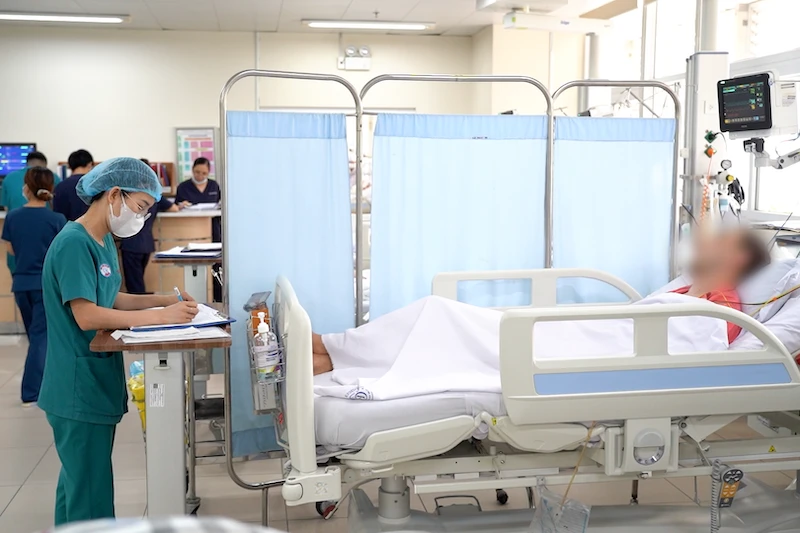Another case where people have to sleep sitting up is people with health problems, such as kidney failure. People who have just had surgery may also be asked by their doctors to sleep sitting up for 1 to 2 days, according to the health website Healthline (USA).

Sitting for long periods of time can increase the risk of blood clots
Whether you sleep sitting up on a plane or in a reclining car seat, your head is usually tilted to one side. This sleeping position makes it difficult to keep your head and neck in a straight position. As a result, you wake up with a sore neck. In addition to this effect, you will also encounter other problems if you sleep sitting up for many hours.
A study published in the journal Chronobiology International found that sleeping sitting up can put the body into a state of increased physiological arousal. This makes it difficult for us to fall asleep and if we do sleep, it will be restless.
Sitting up while sleeping inhibits the body's resting and digestive functions. These functions are regulated by the parasympathetic nervous system. Instead, sitting up while sleeping stimulates the sympathetic nervous system, which is associated with alertness and rapid response to external threats. Therefore, sitting up while sleeping makes it difficult for people to sleep deeply.
Another thing is that sitting up while sleeping increases your risk of developing deep vein thrombosis. Prolonged sitting down over several days can lead to blood clots in the veins of your legs. If these clots travel through your blood vessels and get close to vital organs, like your lungs, they can be life-threatening, according to Healthline.
Common symptoms of a blood clot include pain and swelling in the leg, and the skin in the area may also change color and feel warm to the touch. If you notice these symptoms, you should see a doctor immediately.
However, not all cases of sitting up have negative effects. A study published in the journal American Review of Respiratory Disease conducted on 13 people with obstructive sleep apnea (OSA). The results showed that sleeping in a 60-degree upright position significantly reduced symptoms of sleep apnea.
To reduce negative health effects, experts recommend that if you sleep sitting up, you should place a small pillow behind your head to help your head get into a comfortable position, while your feet should be stretched out, facing forward, not bent or tilted to one side, according to Healthline.
Source link




![[Photo] Unique folk games at Chuong Village Festival](https://vstatic.vietnam.vn/vietnam/resource/IMAGE/2025/4/10/cff805a06fdd443b9474c017f98075a4)
![[Photo] April Festival in Can Tho City](https://vstatic.vietnam.vn/vietnam/resource/IMAGE/2025/4/10/bf5ae82870e648fabfbcc93a25b481ea)
![[Photo] Opening of the 11th Conference of the 13th Party Central Committee](https://vstatic.vietnam.vn/vietnam/resource/IMAGE/2025/4/10/f9e717b67de343d7b687cb419c0829a2)






















































































Comment (0)